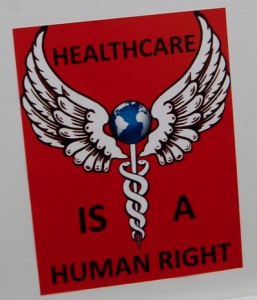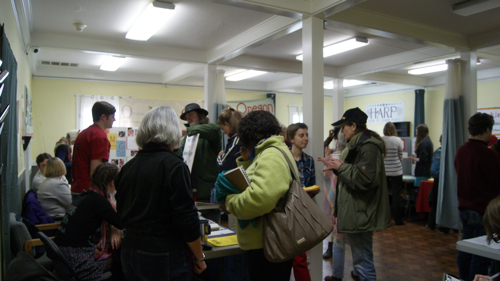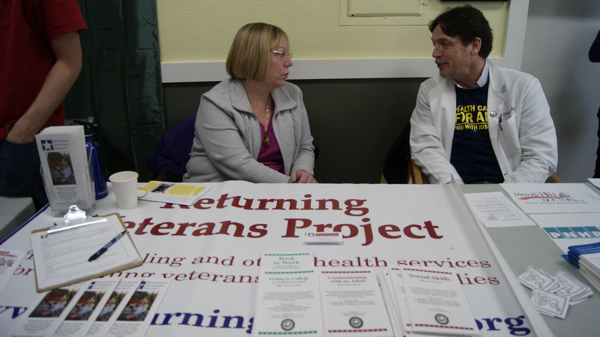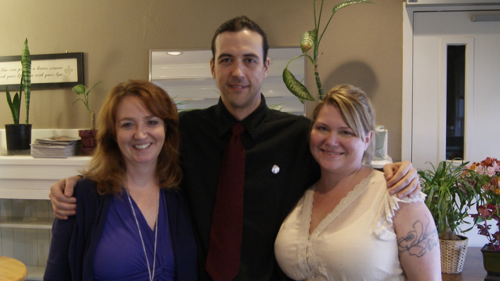by illona trogub
With one-third of Americans suffering from one of the big seven treatment-needing diseases and one-sixth of Americans being uninsured, corporate healthcare in this country is not working. As the saying goes, “Prevention is the best medicine”. However, there’s not much money to be made by Big Insurance and Big Pharma if their customers are healthy. In ancient China, doctors would regularly go from house to house, checking in with families on their health. They made their living by making these rounds. Concerned with the health of their patients, they knew they would not get paid if their patients were sick. These Chinese doctors only received payment if the family was healthy! Talk about a paradigm shift.Several thousand years later on the other side of the globe, we now sit ten-deep in emergency waiting rooms, hesitant to even call a doctor until the condition has gotten so bad it is affecting our ability to function from day to day. We are afraid of doctors, and doctors are afraid of lawsuits from us. We are afraid of insurance companies. We are afraid of our own bodies. We have forgotten that the weeds that now grow through the cracks of concrete once considered medicine. We have forgotten that the doctors we are now so afraid of were once considered members of the family as we interacted daily in our communities. Is it too late to bring back that connection to our medicines and our community? The Occupy Portland Health Committee doesn’t think so.
On January 28th, I walked into a bustling medical office to find a room filled with tables, white coats, and lively discussion. Synergy was occurring all around me as previously disconnected groups were intermingling about how they could best work together and resolve the desperate health conditions we find our modern selves in. Magan Holm, one of the Occupy Portland Health Fair’s organizers, is 36 years old. She’s earning a Master’s degree in Public Health. With a daughter and no insurance due to a pre-existing condition clause, she’s channeled her frustration into action by connecting with others in the healthcare community through the Occupy Portland Health Committee. Five weeks ago, the committee came together for the first time and recognized the need for some serious networking in the alternative healthcare community. The Occupy Movement has a habit of doing that–it is the ultimate network. Anyone can plug into anything they are passionate about.
Occupy Portland actually has three separate health-related committees. Every camper will remember the incredible efforts of the donation-run Medical Team as they provided daily health services to campers and visitors alike. No one was asked for insurance, no one was turned away and no one expected payment. Since the eviction of camp, Medical now supports marches. Rumor has it they are also considering setting up services at St. Francis, but this will require support from the community in a way that’s dropped off in recent months. The second group, working closely with Jobs With Justice, is the Occupy Portland Healthcare Committee, which is focused on single-payer healthcare reform. They are elbows-deep in policy, advocacy, and outreach. And third, there’s Occupy Portland Health Committee, the ones who organized the day’s event. They believe that “Healthcare is more than just access to a professional.”
But what does that look like? Currently, Portland leads the way in offering alternative prevention and treatment choices. The Health Committee knows this and is organizing efforts even further by creating a strong network of organizations previously raising awareness on their own. They range from fairly traditional treatment systems as in the case of the Coalition of Community Health Clinics (CCHC) which used to be under Multnomah County Health’s jurisdiction to more radical establishments such as the Healing Arts Resources Project (HARP) where volunteers can earn local currency and exchange it for access to treatment, workshops, herbal remedies, and more. Then there’s the Patient Physician Cooperative (PPC) which seeks to cut out the middle man and establish true relationships between healthcare providers and patients. But in Portland, even the more traditional organizations like CCHC offer a vast amount of alternative treatment options.
The oldest of the three is the CCHC. They’ve been around town for more than 25 years offering healthcare to the uninsured. All of their funding comes from grants (not Big Pharma–I checked). They are working with the current system but also helping to build alternative systems. They do advocacy work for communities of color and low-income. Their website offers to find a clinic for you. However, expect to wait in line to see a doctor and potentially, there won’t be an expert in the field you need.
The PPC – PDX is a fairly new non-profit. In what is now a relationship of buyer and seller due to the inexhaustible influence of pharmaceutical companies, the PPC hopes to transform the doctor patient relationship to one of mutual benefit. They’re goal is to remove the middle-man (insurance) for a small monthly membership fee of $18. Monthly care will run about $60-$70 depending on the physician you choose. So far they have about 32 practitioners on board in various fields of medicine. For the membership fee, members receive a prescription discount card with an average discount of about 50% on medication, access to the 24/7 Tele-Doc Network, and access to the physician list. It’s good deal if you can afford it.
HARP, run by Stephanie Dougherty, has recently moved from SE to the Sellwood neighborhood and expanded to include a storefront. HARP focuses its energy on four areas: healing arts, visual arts, movement arts, and community arts. With a “farmacy” in back, guests can learn to grow and make their own medicines from plants, take a class in meditation techniques or conflict-resolution, and simply become an engaged community member empowered to heal themselves and the world around them. Simple, right? At least there’s a place in town to begin. HARP’s new location will have their grand-opening celebration the day after St. Patrick’s Day, March 18th; so hurt your liver on Sunday, and come by for some milk thistle liver-cleansing tonic on Monday, while celebrating the existence of such an indispensable community resource.
With all these options and more, those without insurance have no reason to fear. On the contrary, we should be filled with glee that here in Cascadia we’re building a dual power system that is challenging the corrupt current model of healthcare. There are also efforts being made by Cascadia Commons, a new bioregional benevolent society working towards our very own Cascadia-wide healthcare system. But don’t wait for them! Start taking care of yourselves with preventative measures such as eating an organic whole grain, bean, nut and vegetable based diet and getting out into the sunshine… er, rain, as much as possible. Ditch that car for a bicycle and your new “Cascadian health ensurance plan” might even start saving you money! And don’t forget to take advantage of all the incredible resources springing up around us.
Learn more at pdxoccupyhealth.org. Get involved by contacting pdxoccupyhealth@googlegroups.com. Or visit the PDXGA.org group site and join them.











3 comments for “Healthcare Cascadian Style – Notes from the Occupy Portland Health Fair”